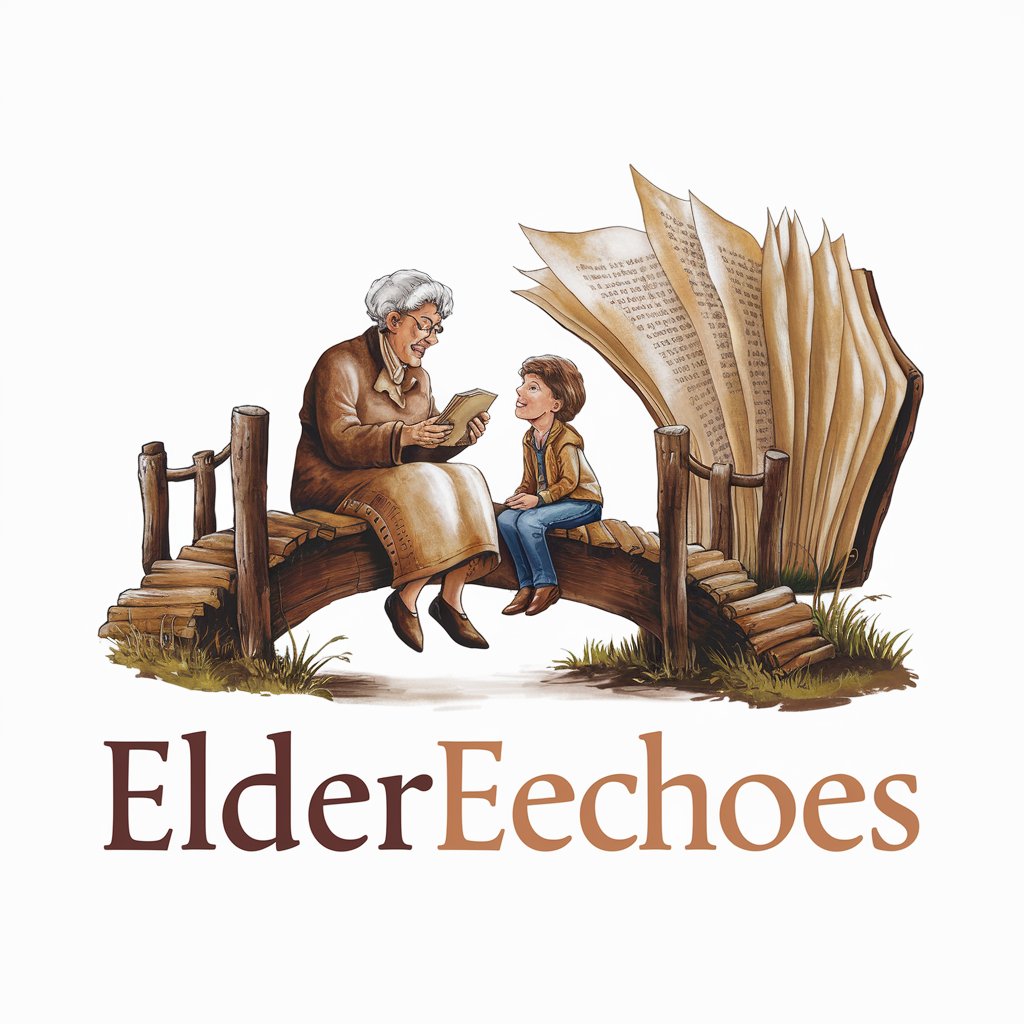8 GPTs for Legacy Preservation Powered by AI for Free of 2025
AI GPTs for Legacy Preservation refer to advanced artificial intelligence systems that are specifically designed or adapted to assist in the preservation of cultural, historical, and personal legacies. Leveraging the power of Generative Pre-trained Transformers (GPTs), these tools offer tailored solutions for archiving, documenting, and sharing the stories and artifacts that define our collective and individual pasts. Their role is crucial in ensuring that valuable knowledge and heritage are not lost to time, but rather are accessible for future generations.
Top 8 GPTs for Legacy Preservation are: Biography,Isaaq,Elegy Assistant,Personal Biographer,Eternal Echo, the Digital Afterlife Architect,Coach Lee Rose Foundation,Memory Weaver,SovereignFool: ElderEchoes
Biography
Crafting Your Story with AI

Isaaq
Crafting Your Story, Preserving Your Legacy

Elegy Assistant
Crafting Heartfelt Tributes with AI

Personal Biographer
Craft Your Legacy with AI

Eternal Echo, the Digital Afterlife Architect
Preserve Your Legacy with AI

Coach Lee Rose Foundation
Empowering Communities, Honoring Legacy

Memory Weaver
Crafting Memories with AI

SovereignFool: ElderEchoes
Crafting legacies, connecting generations.

Key Attributes and Functions of Legacy Preservation AI
AI GPTs for Legacy Preservation are distinguished by their adaptability and broad range of capabilities, from language understanding to complex data analysis. These tools are capable of interpreting and processing historical texts, images, and oral histories, transforming them into organized, digital formats. Special features may include advanced language learning for deciphering obsolete dialects, technical support for digitizing and archiving materials, sophisticated web searching for historical research, image creation for restoring or visualizing past artifacts, and analytical tools for uncovering patterns or trends within historical data.
Who Benefits from Legacy Preservation AI Tools
The primary users of AI GPTs for Legacy Preservation include historians, archivists, museum professionals, genealogists, and anyone with an interest in safeguarding historical and personal heritage. These tools are designed to be user-friendly, making them accessible to novices without coding experience, while also offering advanced customization options for developers and professionals in the field of legacy preservation.
Try Our other AI GPTs tools for Free
Memory Compilation
Explore the world of AI GPTs for Memory Compilation: versatile, user-friendly tools designed for efficient data processing and analysis, perfect for both beginners and experts.
Personalized Updates
Discover how AI GPTs for Personalized Updates transform information delivery, tailoring content to your interests with cutting-edge natural language processing technology.
Accessible Anywhere
Discover 'Accessible Anywhere' AI GPTs: versatile AI tools designed to provide personalized, efficient assistance across platforms, ideal for a wide range of applications.
RPG Collaboration
Discover how AI GPTs transform RPG Collaboration with innovative tools for narrative development, character creation, and gameplay optimization. Perfect for developers and enthusiasts.
Photo Reminiscence
Discover how AI-powered GPT tools revolutionize photo reminiscence, making it easier to preserve, share, and enrich memories with contextual narratives and enhancements.
Test Optimization
Discover how AI GPTs revolutionize Test Optimization with intelligent test case generation, analysis, and seamless integration, enhancing software quality and efficiency.
Expanding the Horizons of Legacy Preservation with AI
AI GPTs introduce a revolutionary approach to preserving historical and personal legacies by offering scalable, customized solutions across different sectors. Their integration into existing workflows and systems enhances efficiency and accessibility, while user-friendly interfaces ensure that these powerful tools can be utilized by individuals and professionals alike to safeguard our rich heritage.
Frequently Asked Questions
What exactly are AI GPTs for Legacy Preservation?
AI GPTs for Legacy Preservation are artificial intelligence systems tailored to support the documentation, archiving, and sharing of cultural, historical, and personal legacies, using the capabilities of Generative Pre-trained Transformers.
How can these AI tools help in preserving legacy?
They assist in digitizing and organizing historical documents, interpreting obsolete languages, visualizing past artifacts through image creation, and conducting research through sophisticated data analysis and web searching.
Who can use AI GPTs for Legacy Preservation?
These tools are intended for a broad audience, including historians, archivists, genealogists, and the general public interested in preserving historical and personal heritage.
Do I need coding skills to use these AI tools?
No, these tools are designed to be accessible to users without any coding experience, providing a user-friendly interface for everyone.
Can developers customize these AI tools?
Yes, developers can leverage programming interfaces to tailor these tools to specific legacy preservation needs, adding functionalities or integrating them into existing systems.
What makes AI GPTs suited for Legacy Preservation?
Their ability to understand and process complex historical data, adapt to various tasks from simple to complex, and offer user-friendly solutions for non-technical users makes them ideal for legacy preservation.
Can these tools analyze historical trends?
Yes, through data analysis capabilities, these AI tools can uncover patterns and trends within historical data, providing new insights into our past.
Are these tools effective in deciphering obsolete languages?
Yes, with advanced language learning features, they can interpret and translate obsolete or lesser-known dialects, making ancient texts accessible.